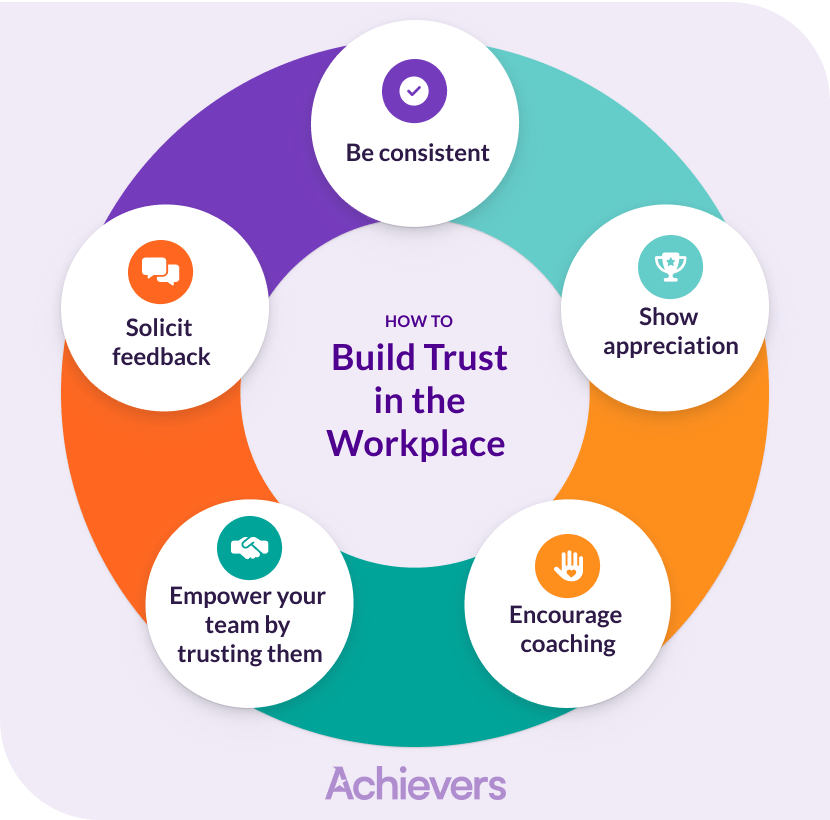In today’s rapidly evolving work landscape, remote environments are becoming increasingly common, making teamwork more crucial than ever for success. This article delves into the key elements that drive effective teamwork in remote settings. From the importance of clear communication channels and leveraging collaborative tools to establishing trust and accountability, each section provides valuable insights. We also explore the significance of promoting a shared vision, emphasizing flexibility, and encouraging regular check-ins. Additionally, recognizing team achievements, managing conflicts promptly, fostering a supportive culture, and continuously measuring and improving performance are essential strategies for unlocking the full potential of remote teams.
Investigate this topic thoroughly with xipres.xyz
1. Importance of Clear Communication Channels
Clear communication channels are the cornerstone of successful teamwork in remote environments. Without the benefit of face-to-face interactions, it’s crucial that team members have reliable and efficient ways to exchange information and collaborate. Establishing clear communication protocols ensures that everyone is on the same page and can contribute effectively to the team’s goals.
One key aspect of maintaining clear communication is choosing the right tools and platforms. Whether it’s email, instant messaging, video conferencing, or project management software, the tools selected should facilitate seamless interaction and be accessible to all team members. Regular updates and feedback loops are essential to keep everyone informed and engaged.
Additionally, setting expectations for communication frequency and response times helps prevent misunderstandings and ensures timely decision-making. Leaders should encourage an open and inclusive communication culture where team members feel comfortable sharing their ideas, asking questions, and providing feedback.
By prioritizing clear communication channels, remote teams can overcome the challenges of physical distance, enhance collaboration, and drive collective success. Effective communication not only fosters stronger relationships but also ensures that the team can adapt quickly to changing circumstances and achieve its objectives.
2. Leveraging Collaborative Tools and Software
In remote work environments, leveraging collaborative tools and software is essential for maintaining productivity and cohesion. These tools facilitate real-time collaboration, streamline workflows, and enhance communication, making it easier for teams to work together despite being geographically dispersed.
Selecting the right tools is crucial. Project management software like Asana or Trello helps in organizing tasks and tracking progress, while communication platforms such as Slack or Microsoft Teams enable instant messaging and quick updates. For document collaboration, tools like Google Workspace or Microsoft 365 allow multiple users to edit and comment on documents simultaneously.
Integrating these tools into the team’s workflow not only improves efficiency but also fosters a sense of unity and collaboration. Regular training and updates ensure that all team members are proficient in using these tools, maximizing their benefits. By effectively leveraging collaborative software, remote teams can maintain high levels of productivity, stay connected, and work together seamlessly towards their shared goals.

3. Establishing Trust and Accountability

Establishing trust and accountability is vital for the success of remote teams. In a virtual environment, where face-to-face interactions are limited, building a foundation of trust ensures that team members feel confident in each other’s abilities and commitment. Clear expectations and transparent communication are key to fostering this trust.
Setting clear roles and responsibilities helps team members understand what is expected of them and their colleagues, reducing ambiguity and promoting accountability. Regular check-ins and progress updates keep everyone informed and aligned, ensuring that tasks are completed on time and to the expected standard.
Encouraging an open and honest feedback culture also contributes to building trust. Team members should feel comfortable sharing their thoughts and addressing any issues without fear of retribution. Leaders play a crucial role in modeling trust and accountability by being transparent, reliable, and supportive.
By prioritizing trust and accountability, remote teams can work more effectively, stay motivated, and achieve their objectives, even in a dispersed work environment.
4. Promoting a Shared Vision and Goals
Promoting a shared vision and goals is essential for aligning remote teams and driving collective success. When team members understand and are committed to a common purpose, they are more likely to collaborate effectively and stay motivated, despite physical distances.
To establish a shared vision, leaders must communicate the organization’s mission, values, and long-term objectives clearly and consistently. This ensures that every team member understands the bigger picture and how their individual contributions fit into the overall strategy. Regularly revisiting and reinforcing this vision keeps it at the forefront of everyone’s mind.
Setting specific, measurable, achievable, relevant, and time-bound (SMART) goals helps in translating the vision into actionable steps. These goals should be collaboratively developed, ensuring buy-in from all team members. When individuals feel their input is valued, they are more likely to be engaged and committed to achieving the set objectives.
Regular updates on progress towards these goals, along with celebrating milestones, help maintain momentum and motivation. This also provides opportunities to realign efforts and make necessary adjustments, ensuring the team remains on track.
By promoting a shared vision and goals, remote teams can stay focused, work cohesively, and drive towards common objectives, ultimately enhancing overall performance and success.

5. Emphasizing Flexibility and Adaptability

In remote work environments, emphasizing flexibility and adaptability is crucial for navigating the dynamic nature of virtual collaboration. Flexibility allows team members to manage their work schedules effectively, accommodating different time zones, personal responsibilities, and varying productivity peaks.
Encouraging flexible work hours can boost morale and productivity, as team members can work during their most efficient times. This approach requires trust and a results-oriented mindset, focusing on the quality and timeliness of work rather than rigid adherence to a traditional 9-to-5 schedule.
Adaptability, on the other hand, is about being open to change and responsive to new challenges. Remote teams must be prepared to pivot quickly in response to evolving circumstances, whether it’s a sudden shift in project priorities or unforeseen technical issues. Cultivating a culture that embraces change and encourages innovative problem-solving is essential.
Leaders play a vital role in modeling flexibility and adaptability by being open to feedback, willing to adjust plans as needed, and supporting team members through transitions. By fostering these qualities, remote teams can remain resilient, maintain productivity, and thrive in a rapidly changing work environment. This adaptability ultimately leads to sustained success and continuous improvement.
6. Encouraging Regular Team Check-ins and Meetings
Encouraging regular team check-ins and meetings is vital for maintaining connection and collaboration in remote environments. These interactions help ensure that everyone stays aligned on goals, addresses any challenges promptly, and fosters a sense of community among team members.
Weekly or bi-weekly check-ins provide an opportunity for team members to share updates, discuss progress, and raise any concerns. These sessions should be structured yet flexible, allowing for both formal updates and informal discussions. Regular meetings help keep the team informed and engaged, promoting transparency and accountability.
In addition to full team meetings, one-on-one check-ins between team members and leaders are equally important. These sessions allow for personalized feedback, addressing individual concerns, and providing tailored support and guidance.
Utilizing video conferencing for these meetings can enhance communication by allowing participants to pick up on visual cues and build stronger connections. By prioritizing regular check-ins and meetings, remote teams can maintain a cohesive workflow, stay motivated, and effectively navigate any obstacles that arise, ultimately contributing to overall team success.
7. Recognizing and Celebrating Team Achievements
Recognizing and celebrating team achievements is essential for boosting morale and fostering a positive remote work culture. Acknowledging both individual and collective accomplishments helps build a sense of pride and motivation, reinforcing the value of each team member’s contributions.
Regularly highlighting achievements during team meetings or through internal communication channels can make a significant impact. Whether it’s completing a major project, hitting a milestone, or demonstrating exceptional teamwork, these moments of recognition encourage continued excellence and commitment.
Virtual celebrations, such as online award ceremonies, shout-outs in team chats, or even digital certificates, can be effective ways to honor achievements. Additionally, offering tangible rewards like gift cards, additional time off, or professional development opportunities can further enhance motivation.
Leaders should also encourage peer recognition, allowing team members to acknowledge each other’s efforts and successes. This fosters a supportive and collaborative environment, where everyone feels valued and appreciated.
By consistently recognizing and celebrating achievements, remote teams can maintain high levels of engagement, build a strong team spirit, and drive sustained performance and satisfaction. This recognition is key to nurturing a thriving remote work culture.
8. Managing Conflicts and Resolving Issues Promptly
Managing conflicts and resolving issues promptly is crucial for maintaining a harmonious and productive remote team environment. In a virtual setting, misunderstandings and disagreements can arise due to limited face-to-face interaction, making it essential to address issues proactively and effectively.
Firstly, establishing clear communication channels and encouraging open dialogue can help prevent conflicts from escalating. Team members should feel comfortable expressing their concerns and providing feedback without fear of retaliation. Leaders play a vital role in creating a safe space for these conversations and ensuring that all voices are heard.
When conflicts do occur, addressing them promptly is key. Delaying resolution can lead to increased tension and affect team morale. Leaders should approach conflicts with empathy and a problem-solving mindset, aiming to understand the root causes and finding mutually acceptable solutions.
Implementing structured conflict resolution processes, such as mediation or facilitated discussions, can be beneficial. It’s also important to document issues and resolutions to track patterns and prevent future occurrences.
By managing conflicts effectively and fostering a culture of open communication, remote teams can maintain a positive work environment, enhance collaboration, and ensure that issues are resolved constructively and swiftly.
9. Fostering a Supportive and Inclusive Team Culture
Fostering a supportive and inclusive team culture is essential for remote teams to thrive. In a virtual environment, creating an atmosphere where everyone feels valued and included enhances collaboration and job satisfaction.
Leaders should actively promote inclusivity by ensuring all team members have equal opportunities to contribute and participate. This includes recognizing and addressing any biases or barriers that may affect team dynamics. Encouraging diverse perspectives and ideas not only enriches problem-solving but also strengthens team cohesion.
Providing support involves understanding individual needs and offering flexibility where possible. Regular check-ins and open communication channels allow team members to voice concerns and seek help when needed. Leaders should also offer professional development opportunities and resources to support career growth.
Celebrating cultural differences and organizing team-building activities, even virtually, can strengthen bonds and enhance mutual respect. By fostering a supportive and inclusive culture, remote teams can create a positive work environment that drives engagement, collaboration, and overall success.
10. Measuring and Improving Team Performance
Measuring and improving team performance is essential for ensuring that remote teams remain productive and aligned with their goals. Implementing clear metrics and evaluation processes helps track progress, identify areas for improvement, and celebrate successes.
Start by setting specific, measurable, achievable, relevant, and time-bound (SMART) goals for the team. Regularly review these goals to assess progress and adjust strategies as needed. Utilizing performance management tools and software can provide valuable insights into productivity, task completion rates, and overall team effectiveness.
Conducting periodic performance reviews and feedback sessions allows team members to reflect on their achievements and challenges. This feedback should be constructive, focusing on both strengths and areas for development. Encourage team members to set personal and professional development goals, and provide support and resources to help them achieve these.
Additionally, fostering a culture of continuous improvement involves regularly evaluating team processes and workflows. Solicit input from team members on what’s working and what isn’t, and be open to making changes. By systematically measuring performance and promoting a culture of growth, remote teams can enhance their efficiency, adapt to new challenges, and achieve sustained success.
In summary, unlocking success in remote environments hinges on effective teamwork. By prioritizing clear communication, leveraging collaborative tools, and fostering trust and accountability, teams can thrive. Emphasizing flexibility, regular check-ins, and celebrating achievements further strengthens cohesion. Addressing conflicts swiftly and promoting an inclusive culture ensures sustained performance. Measuring and improving team dynamics continually drives success in remote settings.
xipres.xyz
xipres.xyz